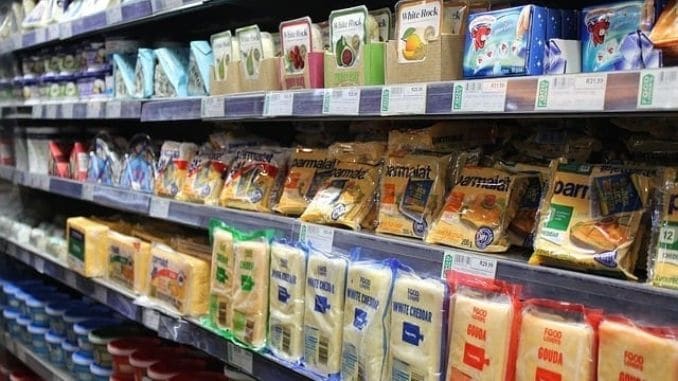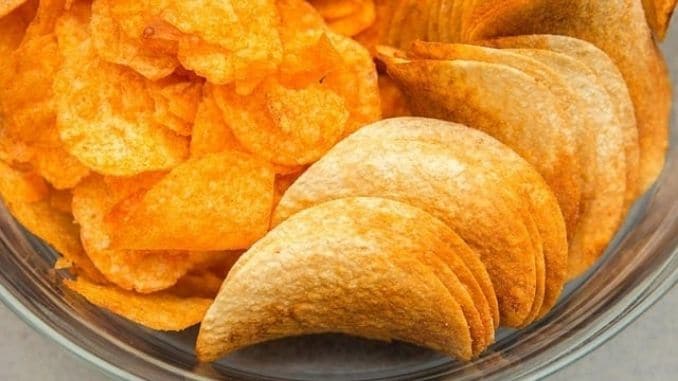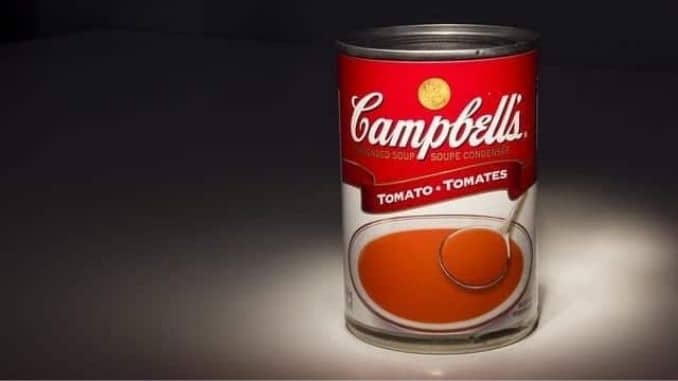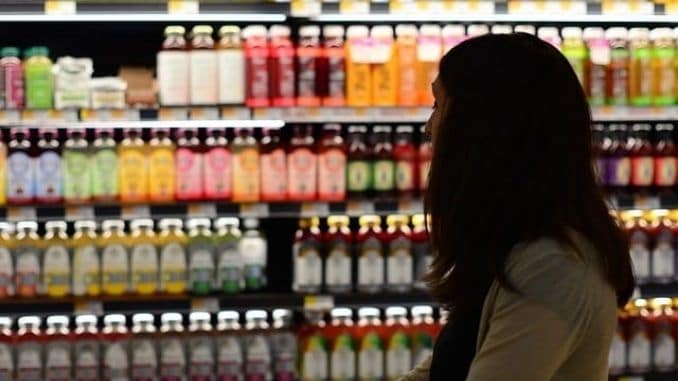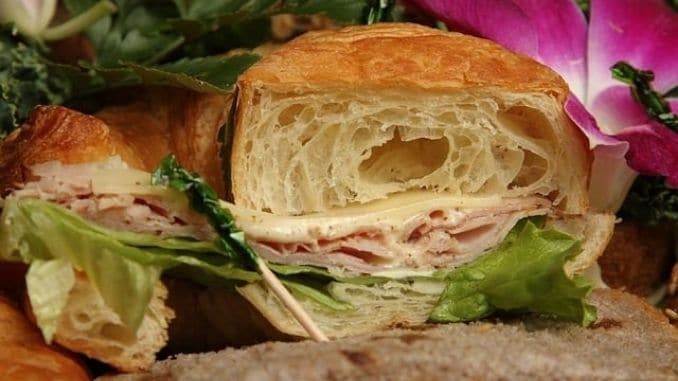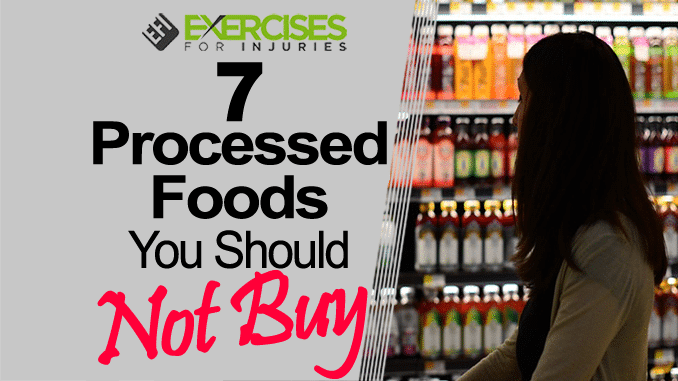
The American Institute for Cancer Research (AICR) a few months ago raised the alarm about the modern Western diet and processed foods.
“If you’re like the average American,” wrote Alice G. Bender, MS, RDN, director of nutrition programs at AICR, “more than half of your diet is filled with processed foods. Many of these foods are full of added sugar and fat and contribute to overweight and obesity.”
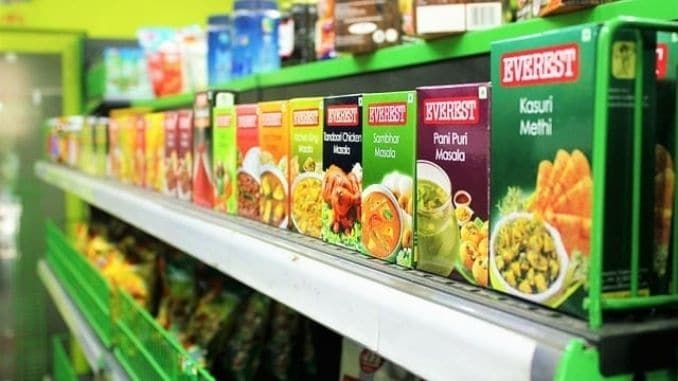
This matters, she adds, because obesity has been linked to several health problems, including type 2 diabetes, heart disease and cancer.
Food Categories
Researchers reported just last year that our tendency to turn to processed foods is depriving us of important nutrients we need for optimal health.
For their study, they separated food into three categories according to how much (or how little) they are processed:
1. Unprocessed Or Minimally Processed
Foods that go through little to no processing; examples include fresh vegetables, fruits, and milk.
2. Other Foods
Foods like cheese, pickled foods and nut butters.
3. Ultra-Processed Foods
Foods that go through the most processing, including packaged foods like salty snacks, cookies, soft drinks and many canned goods.
Then, they analyzed data from more than 9,000 people who participated in the U.S. National Health and Nutrition Examination Survey (NHANES) and found the following results:
- The participants got more than half of their calories from ultra-processed foods
- The participants got less than one-third of their calories from unprocessed or minimally processed foods; about 12 percent of calories came from the other foods category
- The more ultraprocessed foods the participants ate, the fewer nutrients they received, including protein, fiber, vitamins (A, C, D and E), potassium and calcium
- The more processed foods the participants ate, the more added sugar, saturated fat and overall carbohydrates they consumed
- The more unprocessed/minimally processed foods the participants ate, the more nutrients they received, including fiber, potassium and vitamin C while they also took in fewer sugars and saturated fats
The researchers concluded that to protect our health, we have to do one thing — eat fewer processed foods. To help you do that, we’ve got seven of the worst packaged foods below for you to avoid, along with some recommendations of healthier options you can choose instead.
What Are Processed Foods?
Before we continue, it may help to define processed food clearly. What are processed foods, anyway?
These are foods that are not in their natural state. A banana, for example, is a natural, nonprocessed food. Banana-flavored pudding that you buy already packaged is a processed food and usually includes added preservatives to extend shelf life as well as additional chemical flavorings. A potato is a natural food, but potato chips are processed foods that come with additional chemical preservatives and flavorings.
Researchers from the study above noted that processed foods typically are manufactured using several ingredients that are “lower-cost industrial sources of dietary energy and nutrients” as well as additives that add flavor or texture. They added that these processed foods are also higher in added sugar, total fats, saturated fats and trans fats and lower in protein, fiber and most other nutrients.
What’s Wrong With Processed Foods?
The issue with processed foods is twofold: nutrients are lost, and artificial ingredients are added in.
Food straight from the source is the most nutritious. If you pick an apple off the tree, for example, you’ll get more nutrients from it than if you wait until it’s picked and shipped to your grocery store. Also, if you wait until the apple is processed into commercially available apple juice, you’ll get even fewer nutrients. If you choose apple-flavored cereal, you may not get any of the original nutrients at all.
What is the level of processing? Milk that is fortified with vitamins is considered processed but only lightly processed. Other lightly processed foods include canned tuna and frozen vegetables. These foods normally contain the majority of their nutrients. Ready-to-eat crackers or cake mixes are considered heavily processed. The most heavily processed foods are typically those that are the fastest and most convenient to make like frozen pizza and microwaveable dinners. These are the foods that are most lacking in their original nutrients.
Heavily processed foods are also those that have the most artificial ingredients in them, including chemical preservatives, flavorings, colors, sweeteners and oils. Some of these added ingredients have been linked with an increased risk of health issues. High fructose corn syrup, for example, is in many processed foods and has been linked in studies to a higher risk of weight gain than regular sugar.
In general, if you’re not sure how processed a food is, consider this: how far away is this food from its original form? That will give you a general idea.
7 Of The Worst Packaged Foods For Your Health
Many processed, packaged foods aren’t good for you. We’ve selected some of the worst here. These foods lack important nutrients and contain potentially dangerous additives that could negatively affect your health.
1. Potato Chips
Processed foods to avoid: These are generally high in fat and calories, so they can lead to becoming overweight and developing obesity quickly. They’re also made specifically to tap into our reward systems, satisfying our desire for salty, fatty foods, which means we usually eat more of them than we should in one sitting.
A 2012 study reported that food can act on the brain in the same way that drugs do, stimulating reward systems that encourage us to eat more and more, even after we’re full.
Potato chips are also low in nutrients and high in sodium, which has been linked to an increased risk of high blood pressure and heart disease. They usually contain preservatives like butylated hydroxytoluene (BHT), which has shown in animal studies to potentially lead to cancer, although we need more studies to know for sure.
-
Try Instead
Baked potato chips or even baked vegetables or apple chips. Unsalted whole-grain pretzels are also a better choice, as is air-popped popcorn.
2. Processed Meats
Processed foods to avoid: The International Agency for Research on Cancer (IARC) has classified processed meat as a carcinogen. They reached this conclusion after 22 experts from 10 countries reviewed more than 800 studies. The results of their review showed that eating 50 grams of processed meat (about four strips of bacon or one hot dog) a day increased the risk of colorectal cancer by 18 percent.
One of the main reasons processed meats are unhealthy is because manufacturers add nitrates to them. These are preservatives that help enhance color and flavor, but nitrates can break down into nitrosamines in the stomach, and nitrosamines have been linked to increased risk of cancer. Nitrites can also change into nitrosamines during high-heat cooking.
-
Try Instead
Canned tuna or salmon, peanut butter, rotisserie chicken, homemade roast turkey, portobello mushrooms or egg salad.
3. Frozen Pizza
Processed foods to avoid: All you have to do is look at the nutrition facts on a frozen pizza to know what’s unhealthy about it. One slice of one brand’s rising crust supreme pizza, for example, has 630 calories, 540mg of sodium, 23 grams of fat — 7 grams of which are saturated — and 56 grams of sugar (and we all know we usually eat more than one slice).
Read the ingredient list, and you’ll find all sorts of chemicals, including sodium nitrite, sodium ascorbate, butylated hydroxyanisole (BHA,) BHT and more.
-
Try Instead
Make your own mini pizza using a whole wheat English muffin and your favorite, real food toppings. Alternatively, try a wheat hamburger bun topped with portobello mushroom and other healthy toppings like bell peppers, onions, spinach and feta cheese. You can also use whole grain toast and bake your toppings on top. Many homemade options don’t take long to make.
4. Canned Soups
Processed foods to avoid: Ready-made soup can be good for you, but many of those on store shelves contain too much sodium. We’re talking sky-high amounts, ranging from 500mg to 900mg or more. The American Heart Association recommends no more than 2,300mg per day.
Many cream-based ready-made soups are also super high in fat and saturated fat, which can pad your waistline and increase your risk for heart disease.
In addition, canned soups are often put into cans that have plastic linings in them, and those plastic linings contain bisphenol-A (BPA), a chemical that has been linked to health problems. The Mayo Clinic warns that BPA may seep from the containers into the food and may increase the risk of high blood pressure. A 2015 study also found that BPA was linked to hormonal disorders, infertility and hormone-dependent tumors like breast and prostate cancer.
-
Try Instead
Look for organic soups packaged in boxes instead of cans, and choose those that are low in sodium and fat — or make your own soup.
5. Fruit Drinks
Processed foods to avoid: Fruit juice and fruit drinks are often very high in sugar, and many of them don’t contain much real fruit juice. One serving of fruit juice can also give you just as many calories as a sugary soft drink (or more), and if you don’t get those that are made with 100 percent juice, you’re getting few to no nutrients with it.
Many manufacturers try to fool you with their labels, marking their juice as “100 percent pure” or “not from concentrate” to make you feel like you’re getting natural food. Double-check the ingredient list as these juices may still contain mostly sugar and flavorings and very little real juice.
Even if you get the 100 percent pure juice, however, you’re still getting a lot of sugar and calories in a serving and no fiber. That means your body is going to process the juice quickly like candy and that can boost your blood sugar levels, then lead you to crash later on. All that sugar can also lead to weight gain.
-
Try Instead
Eat whole fruit instead. If you love fruit juice, choose the 100 percent real juice forms, and limit your consumption to only a half cup now and then as a treat.
6. Sugary Cereals
Processed foods to avoid: Cereal is supposed to be a healthy food, right? Well, not when it’s ultraprocessed. Again, the problem is too much sugar and not enough real grains. Many breakfast cereals are made with refined flour, which means that much of the original nutrients are stripped away. They’re baked at high temperatures, and then machines shape the cereal into flakes, squares, loops and more. Lots of sugar, flavorings and preservatives are added. This is a clear example of “ultraprocessed.”
By the time the cereal gets to you, it lacks most of the nutrients that were in the original ingredients, which is why many manufacturers add vitamins and minerals back in, via supplementation. It is unclear how well your body can absorb these nutrients.
-
Try Instead
Natural grain cereals like real oatmeal and muesli are best. Otherwise, look for those that are high in fiber, low in sugar and made with real whole grains. Check the ingredient list and choose those that have few chemicals and mostly ingredients you can pronounce. You can also choose other breakfast options like low-sugar Greek yogurt, a homemade omelet or natural granola.
7. Processed Substitute Cheese
Processed foods to avoid: Whereas natural cheese is made with real ingredients like milk, salt and enzymes, processed cheese is made with only “some” real dairy ingredients (often a combination of different types) that is then reheated, pasteurized and mixed with emulsifiers to provide a uniform texture. After all that, artificial colorings and flavorings are often added.
Look at a package of American cheese singles, and you may see up to 15 ingredients added, including acetic acid, monosodium phosphate, sodium tartrate and more. Processed cheese also typically contains much more sodium than real cheese.
-
Try Instead
Look for real cheese made from simple ingredients. Read the ingredient list and look for high-quality varieties.
For your guide to the best foods to heal your body, check out The Best Foods that Rapidly Slim & Heal in 7 Days, here!

